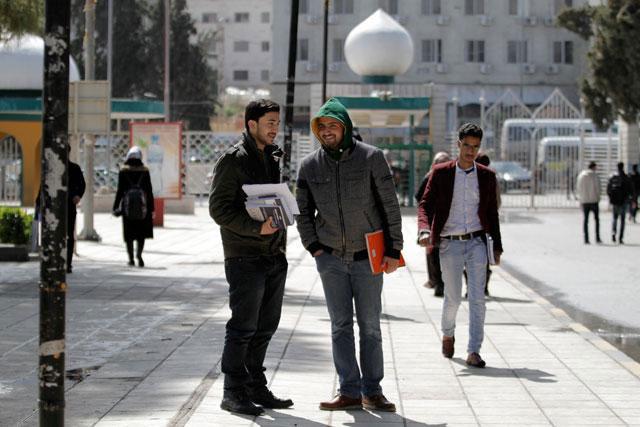You are here
JD18m deficit in student support fund ‘due to graduates not being able to repay loans’
By Ana V. Ibáñez Prieto - Jun 03,2018 - Last updated at Jun 03,2018
AMMAN — The Higher Education Ministry’s student support fund is currently suffering from a deficit of JD18 million, the ministry's secretary general, Ahed Wahadneh, announced on Thursday.
“It is worth noting that this deficit is virtual in the sense that the money is there, but it is still in the hands of the students who are due to pay their loans back,” Wahadneh clarified in an interview with The Jordan Times on Saturday, stressing that the fund has supported students with a total of JD260 million in scholarships and loans since its establishment in the academic year of 2004-2005.
The announcement came during a meeting held by The Future parliamentary bloc to discuss the loan repayment mechanism, which saw the attendance of Finance Ministry Secretary General Abdul Hakim Shibli and several experts in the field.
During the session, Wahadneh stressed the need to “take into account the living conditions of Jordanian citizens”, calling for the development of a system that “preserves the public funds of the state while considering the economic situation of the students borrowing from the fund”.
Accordingly, the official suggested a reduction in the amount of the first repayment instalment aimed at alleviating the burdens on students and their families, in addition to modifications on the procedures used to collect the funds.
However, Wahadneh urged borrowers to repay their loans at their earliest convenience “in order to allow the ministry to continue to benefit the largest amount of students possible”.
“The by-law clearly states that loans should be paid back within five years starting right after graduation,” he told The Jordan Times, noting that “although we [the ministry] understand their condition, it is not possible for us to exempt them [students]”.
“I finished my studies in 2017 and I still have not been able to start paying my loan back because I did not find employment so far,” former Hashemite University student Ammar Al Nadaf said, pointing out that “even if I was working, paying back my student loan would require me to provide a sum of JD70 per month, which is a ridiculously high amount of money when compared to the average salary in Jordan”.
“Paying back the loan means discounting a third of my salary once I start working provided that I get the minimum salary and, despite that, it will still take years for me to get rid of this payment,” Al Nadaf told The Jordan Times.
In this regard, members of the parliamentary bloc organising the meeting called for the extension of the period granted to students to repay their loans under the provisions of the law.
“The ministry is looking into granting a grace period to students after their graduation,” Wahadneh pointed out, explaining that “students receiving a loan in their fourth year are required to pay immediately after graduation and, although the payments are made through instalments, they still face significant economic constraints”.
For his part, Shibli stressed that the Finance Ministry “deals with the fund as a public fund of the state ruled by the law approved for its purpose”, considering, however, “the possibility of a collection system that satisfies the needs of all parties involved”.
Related Articles
AMMAN — The government has allocated JD18 million to support public universities, which suffer from “big” debts and increasing deficits in t
AMMAN — The Council of Ministers on Wednesday approved the new student support fund regulations for official universities, which come in acc
AMMAN — A new committee has been formed by the Ministry of Higher Education to review the regulations governing the student support fund and

















